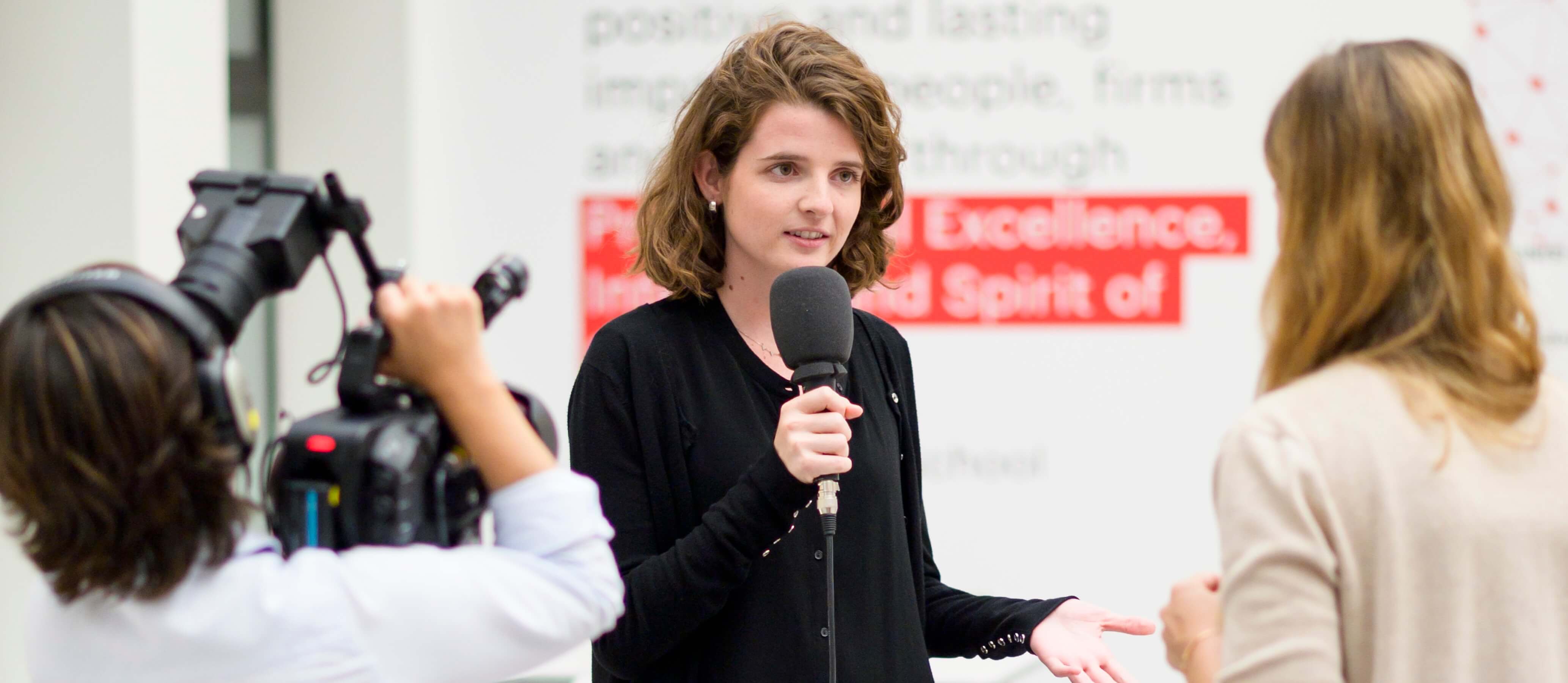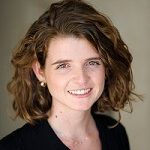My name is Carmen Mora-Figueroa, a current MiM student at IESE Business School. I studied Industrial Engineering also here in Madrid, at ICAI. At the risk of adding to the stereotype, it is true that while my analytical and quantitative background was strong, I was missing a qualitative aspect. In engineering, we don’t concentrate our efforts in learning how to sell our ideas or get other people to understand our projects, which in the end are probably the most important abilities engineers need to succeed in the business world.
I chose the Master in Management (MiM) at IESE because I knew that it would help me develop those missing capabilities.
This program is based on the case method: we don’t go to class just to listen to our professors give lectures, but rather go to discuss cases with them and our colleagues. We have to be able to read a case, extract the main ideas, make conclusions and then defend them in front of nearly fifty people. Your ideas will be challenged, and you will have to keep calm and not give up if you think you are right (knowing, of course, when to change your mind if it turns out there are better ideas out there).
But it wasn’t only developing my capacity to express and defend myself that I was looking for when I chose the MiM. Ever since I finished high school, I knew I wanted to enter the consulting world: I wanted to be in a dynamic environment, working alongside people with similar problem-solving skills as my own. I’ve always been curious and enjoyed learning, getting bored when tasks became too repetitive. Being able to work in completely different sectors and functions from one project to the next (having clients from airlines to food chains to banks) is something that has always called out to me.
Underlying all those problems, there is a common thread: business.
When I finished my Bachelors’ degree, I knew I was missing a business view of the world, and I was confident that the MiM was going to fill this knowledge gap. I have learned about Marketing, Accounting, Capital Markets and many other important subjects. All this knowledge I knew I was going to acquire before signing up to the program. What I wasn’t expecting was the support I was going to find in the program itself for increasing my chances of beginning my professional career in my desired consulting firm (something that is more difficult than many people are aware of).
This support I found in the Consulting Club and in the Career Development Centre (CDC).
At the beginning of the program, students vote for the Clubs that are going to be constituted for the following academic year. In my year, we formed Clubs related to the following areas: Consulting, Finance, Entrepreneurship, Industry, Women in Business, and Padel. These Clubs offer support activities related to their area, mainly organized by their president and executive team: guest speakers, interview practice, inter-Club debates, and any other activities the members want. I happened to be selected for being President of the Women in Business Club. We have had guest speakers talking about official studies of women in professional settings, debates and role playing with class members interested in this topic and events more on the social side like club dinners. Anyone is free to join whatever Club they think will offer some kind of value, in their professional but also personal lives. I personally applied for the Women in Business, Padel, and Consulting Clubs.
Working with the Women in Business Club
Since I was applying for the consulting sector in Spain and applications for Spanish consulting firms begin as early as October, my career preparation process began earlier than the majority of my colleagues (mostly international students). To give some briefing, entry processes for consulting firms are quite demanding: they generally include logic tests, personal interviews, and several case interview rounds, conducted initially with junior consultants and then later with more senior individuals within the firm.
The competition is highly intense and the margin of error for applications is miniscule.
There are two main components to consulting applications: the resume and cover letter. In my case, my resume initially went through the general structure editing conducted by the CDC in sessions that were conducted on a class-wide basis. Afterwards, to tailor my resume to the consulting sector specifically, the President of the Consulting Club personally sat down with me to go over both my resume and cover letter (thank you Dalbert!). After the hardships of producing numerous versions of cover letters and variations of resumes, my application documents were completed and were subsequently submitted.
Following the submission of the consulting applications, then came the necessity to prepare for the aforementioned personal and case interview processes. In terms of the personal interview preparation, the CDC lectures on how to highlight personal strengths and structure responses were informative and enlightening. Around the same time, we held weekly sessions with an ex-McKinsey consultant on how to crack cases whilst assisting students in developing their own individualized frameworks. To top it all off, we had the MBA Consulting Club members support in setting up mock interviews to practice the tools we had picked up in our CDC sessions. The resources were all there, your progress just depended on how much time and effort you were willing to invest in interview preparation. By working hard during the preparation process with the support of IESE and my peers, I got a job in my preferred sector of consulting.
All in all, I am really happy with my choice of the MiM program.
I have achieved what I came to do: learn, enjoy myself, and progress in my career path. This has only been possible because of stellar staff, amazing professors, and incredible classmates. In particular, you can see everyone’s dedication during these times of crisis. I am grateful for having been a part of this program and will cherish this experience for the rest of my life.
Carmen Mora-Figueroa
MiM 2020
EY Parthenon – Spain




